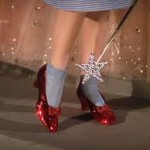 I’ve been listening to a book on CD about the works of C.S. Lewis. Lewis wrote the children’s book series, The Chronicles of Narnia, plus several other fantastical fiction works for adults and Christian apologetics. He was a scholar of Medieval literature and a professor at Oxford and Cambridge.
I’ve been listening to a book on CD about the works of C.S. Lewis. Lewis wrote the children’s book series, The Chronicles of Narnia, plus several other fantastical fiction works for adults and Christian apologetics. He was a scholar of Medieval literature and a professor at Oxford and Cambridge.
Lewis worked Medieval themes into his writing and believed in the beauty of chivalry and “good overcoming evil.” Thus we see many references to “doing battle,” weaponry like swords and shields, the practices of magic and hierarchy, like kings and queens and nobility in general. Lewis also despised what he called “Modernists” and humanists as short-selling the deeper beauty of the cosmos, which he viewed as deeply Christian.
I have read many of C.S. Lewis’s books, all of which are popular including his science fiction trilogy. The college I attended was rooted in the man’s ideas and has the most comprehensive collection of C.S. Lewis memorabilia anywhere, including the very wardrobe which inspired the idea of a link between our world and Narnia. It’s actually a library, and I spent most of my study hours in college at a desk next to that wardrobe, heady for an evangelical teen who believed in all that same stuff.
I was also raised on The Wizard of Oz. This too had a great impact on me. As a five year old, I wrote a letter to Judy Garland, who was Dorothy, and told her that I loved her. My impression was that my mother mailed my letter, but now, I am not too sure.
Anyway, as an adult more familiar with archetypes and themes, I have observed aspects of The Wizard of Oz not commonly identified. In fact, reading through various reviews, I have never seen my particular insights expressed. So, it will be up to me, now, to unfold these as expressing an identical commentary on the cosmos and humanity’s place in it, as C.S. Lewis saw. Except, The Wizard of Oz presents a message exactly opposite of C.S. Lewis’s cosmology, which is, expressed hierarchy.
Common themes include Utopia, good versus evil, innocence, corruption of power, evil posing as good, the journey, magic, comradery, deception, and the fulfillment of desire. My initial structure will include 3 reviews of The Wizard of Oz.
1) The story as we think we know it.
2) Oz as Utopia, Utopia as paradise lost, and deeper messages within the story as social and spiritual commentary on the power of innocence as magical, and the subtle corruption of power of the evil, buried within culture as the form of that same power. Like chasing witches, while the deeper fraud is self-enthroned.
3) A study on the “advanced Oz” application of these themes to the gospel of Jesus, the corruption of that message as it came through Medieval times, the perpetuation of that model through authors like C.S. Lewis, and the common themes of (child-like) innocence as holding power to overcome obstacles to desire, and the nature of desire itself.
My upcoming book is called The Magic of Glenda.
If we think of Glenda, we think of a rather silly woman in a silly dress with a silly wand floating around in a silly bubble. We cannot take her seriously with her silly expression and her silly advice. This is how the Wizard still has us captivated even to this day, with his high-falutin fast talk at every turn, even sending children out on a journey of murder. This deception continues. S.
